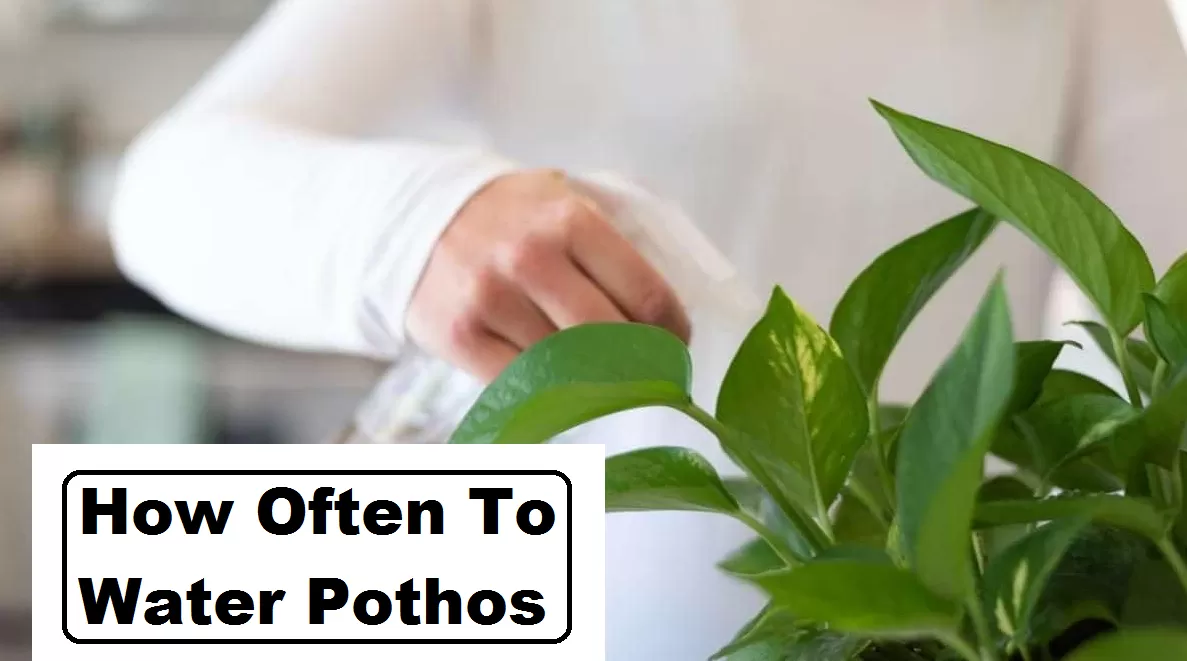How Often Do Water Pothos
Pothos is a popular houseplant known for its beautiful trailing vines and ease of care. It’s also commonly referred to as Devil’s Ivy because it can grow in almost any condition. Pothos plants can thrive in low-light environments, making them ideal for indoor spaces such as offices or homes.
When watering pothos plants, it’s important to remember that they prefer soil that is kept consistently moist but not waterlogged. Overwatering can lead to root rot, while underwatering can cause the leaves to wilt and turn yellow. Watering once every seven to ten days should be sufficient for most pothos plants.
One way to check if your pothos plant needs water is by sticking your finger into the soil about an inch deep. If the soil feels dry at this depth, it’s time to give your plant a drink. Another helpful tip is to use room temperature water when watering your pothos plant, as cold water can shock the roots and cause damage. With these simple tips, you can keep your pothos plant healthy and thriving for years!
How to water pothos
Pothos plants are known to be low-maintenance houseplants, making them an ideal choice for beginners. One of the most crucial aspects of caring for pothos is watering. Overwatering can lead to root rot, while underwatering can cause the leaves to wilt and turn yellow.
It’s best to water your pothos when the top inch of the soil feels dry. Watering frequency may vary depending on factors such as humidity, temperature, and lighting conditions. During summer or warm weather conditions, you may need to water your pothos more frequently than in winter or cooler weather.
Using room-temperature water is recommended rather than cold water that could shock the plant’s roots. You can also use filtered water if you have hard tap water with high mineral content. Remember not to leave standing water in a saucer or pot, as it can lead to root rot and other diseases. With proper watering techniques, your pothos will thrive and grow beautifully!
How to revive a dying pothos
Pothos are low-maintenance plants, but overwatering or underwatering can lead to their decline. If your pothos are wilting or the leaves are turning yellow, it might be a sign of root rot caused by overwatering. The first step to revive a dying pothos is to check the soil moisture level. Stick your finger about an inch into the soil, and if it feels dry, then water it thoroughly. However, if the soil feels moist or soggy, hold off on watering for a few days until the top inch of the soil dries out.
In general, pothos plants prefer well-draining soil and do not like to sit in water for too long. It means you should water them only when necessary and avoid letting them stand in water-filled saucers for extended periods. Depending on environmental factors such as humidity and temperature, you may need to water your pothos plant every 7-10 days during warm weather and every 2-3 weeks during winter when growth slows down. Remember that watering requirements vary greatly depending on various factors, so keep an eye on your plant’s needs!
How often should you water a pothos plant, and what are some watering tips?
Pothos plants are popular houseplants that require minimal maintenance, making them perfect for beginners. However, one of the most common questions about pothos care is how often to water them. The frequency of watering a pothos plant depends on various factors such as temperature, humidity, season, and soil type.
A general rule of thumb is to wait until the top inch or two of soil has dried out before watering your pothos. Overwatering can lead to root rot and other problems, so it’s better to err on the side of under-watering than over-watering. The plant will require less frequent watering when it grows more slowly in winter or low-light conditions.
When you water your pothos plant, ensure that you give it enough water to saturate the soil entirely. However, avoid letting your plant sit in standing water because this increases the risk of rotting roots. It’s best to pour off any excess water that collects in a saucer or cache pot after about 30 minutes.
How to water pothos: Guidelines
Pothos is a popular indoor plant that requires minimal maintenance, but proper watering is crucial to keep it healthy. Overwatering or underwatering can cause damage to the roots and leaves of the pothos plant. As a general rule of thumb, you should water your pothos once a week during the growing season (spring and summer) and reduce watering in winter when the growth rate slows down.
When it comes to watering, make sure not to flood the pot with water, as it can lead to root rot. Instead, water until it starts draining out of the bottom of the container. You can also use a moisture meter to check if the soil is dry before watering again. Another way is by touching the soil surface; if it feels dry about an inch beneath, then it’s time for watering.
In addition, avoid using tap water as some species are sensitive to chlorine and fluoride found in tap water. Instead, opt for distilled or filtered water without chemicals that may harm your pothos plant. By following these simple guidelines on how often and how much to water your pothos plant, you’ll be able to keep this beautiful indoor greenery thriving for years!
Write Frequently Asked Questions about this Topic.
How often should I water my pothos plant?
The frequency of watering your pothos plant depends on several factors, such as humidity, temperature, and soil type. Generally, it is advisable to water your pothos once every 7-10 days during the growing season (spring and summer) when the top inch of soil feels dry. During dormant periods (fall and winter), you can reduce the watering frequency to once every two weeks.
Can I overwater my pothos plant?
Overwatering can lead to root rot and ultimately kill your pothos plant. Ensure you allow the soil to dry completely between watering sessions before adding more water.
Should I use tap or distilled water for my pothos plant?
Pothos plants are not sensitive to chlorine or fluoride found in tap water; hence you can use tap water for your plants without any issues. However, if you live in an area with hard water or high mineral content, distilled or filtered water would be a better option since fewer minerals could accumulate in the soil over time and affect nutrient uptake by roots.










